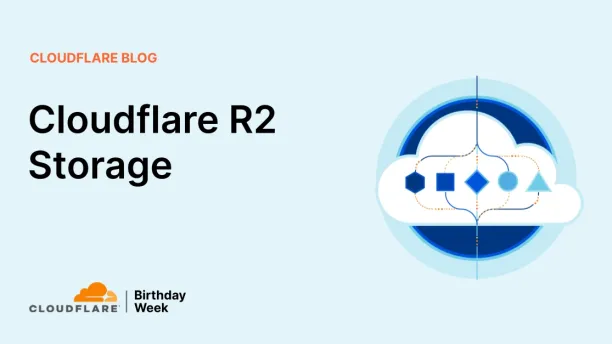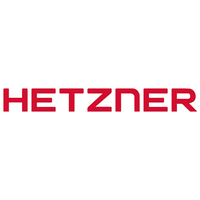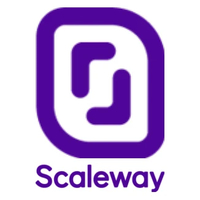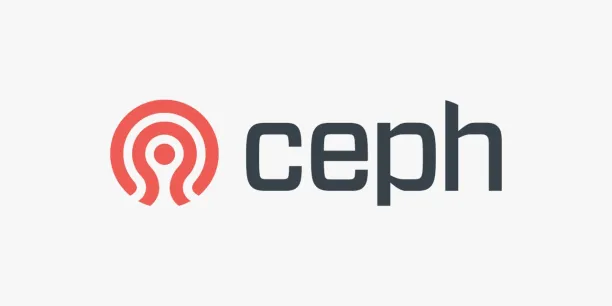I have been using Amazon S3 for over a decade. I have benchmarked leading S3-compatible object storage providers across 9 key criteria (e.g., ease of migration, data transfer fees, storage costs, retrieval times, and mount-ability).
AWS leads the public cloud computing market, with S3 being the most widely used cloud storage service. As its adoption grew, competitors emerged, offering S3-compatible solutions, giving businesses more choices while maintaining compatibility.
We divided S3-compatible storage solutions into two main categories:
- Cloud Providers (Managed Object Storage Services) for fully managed storage services provided by cloud companies, eliminating the need for self-hosted infrastructure.
- Software-based Solutions (Self-Hosted / On-Premises / Private Cloud) to deploy the object storage software on your own infrastructure.
S3 Compatible Cloud Object Storage Providers
| Provider | Pricing | Trial period* | Reviews** |
|---|---|---|---|
| Cloudflare | Pro: $20/month Business: $200/month Enterprise: Custom | ✅ | 4.6 based on 778 reviews |
| Hetzner | Starting $4.59/month | NA | - based on - reviews |
| DigitalOcean | Starting $5/month | ✅ | 4.5 based on 593 reviews |
| Scaleway | Starting $4/month | ✅ | 4.5 based on 17 reviews |
| Blackblaze B2 | Starting $6/month | ✅ | 4.7 based on 86 reviews |
** Reviews are based on Capterra and G2. Vendors are ranked based on their number of reviews.
** Free trial period is included if it is publicly shared.
Price comparison for S3 Compatible Cloud Object Storage Providers
| Storage | Storage Fee (per GB/month) | Retrieval Fee (per GB) | Details |
|---|---|---|---|
| Cloudflare R2 | Standard: $0.015 Infrequent Access: $0.01 | Standard: Free Infrequent Access: $0.01 | No egress fees; Class A operations: $4.50/million requests; Class B operations: $0.36/million requests. |
| Hetzner | Standard: €0.005 | Free | Inbound data transfer is free; outbound data transfer is free up to 1 TB/month, then €1.00 per TB. |
| DigitalOcean | Standard: $0.02 | Free | $5/month includes 250 GB storage and 1 TB outbound transfer; additional storage at $0.02/GB; additional outbound transfer at $0.01/GB. |
| Scaleway | Standard: ~€0.0146 One Zone: ~€0.012 | 75 GB free egress per month, then €0.01/GB | NA |
| Blackblaze B2 | $0.006 | $0.01 | First 10 GB of storage is free; no charge for data uploads; Class B transactions: first 2,500 free each day, then $0.004 per 10,000 calls. |
Differentiating features of providers
| Provider | Mountable (S3 Fusing)* | External Data Transfer | Static Web Hosting |
|---|---|---|---|
| Cloudflare | ✅ with S3FS or rclone | ✅ | ✅ |
| Hetzner | ✅ with S3FS or rclone | Free up to 1 TB; then at €1.00 per TB | ❌ |
| DigitalOcean | ✅ | Depends on hosting provider | ❌ |
| Scaleway | ✅ | Free 1 TB/month, then $0.01/GB | ✅ |
| Blackblaze B2 | ✅ with S3FS or rclone | Free 1 TB/month, then $0.01/GB | ❌ |
*Mounting Cloudflare R2 storage using S3FS has presented challenges for some users. Despite R2’s compatibility with the S3 API, there have been reports of difficulties when attempting to mount R2 buckets with S3FS.
**In Cloudflare R2, Class A and Class B operations categorize different types of actions performed on stored data. (Class A Operations. e.g., PUT, POST, and Class B Operations, e.g., GET)
***Inbound Data Transfer is free for all storages, allowing users to upload data without incurring additional costs.
****Retrieval time varies based on the cluster setup, depending on factors like network speed, hardware, and storage architecture.
Top S3-compatible cloud object storage solutions analyzed
Cloudflare R2
Cloudflare R2 is an object storage solution that eliminates egress fees, making it a cost-effective choice for applications with high outbound data transfer needs. Cloudflare R2 is also suitable for static web hosting, allowing direct file serving without additional configuration.
It is optimized for fast retrieval, benefiting from Cloudflare’s global infrastructure. However, it does not support direct mounting via S3FS, which may require workarounds such as using rclone for access.

Pros:
- Zero egress fees – No outbound transfer costs, unlike most competitors.
- Optimized for retrieval speed – Benefits from Cloudflare’s global network.
- S3-compatible API – Works with existing S3-based applications.
- Supports static web hosting – Can serve files directly without additional setup.
Cons:
- No native support for S3FS mounting – Requires tools like
rclonefor certain integrations. - Limited advanced storage configurations – Less flexibility compared to self-hosted solutions.
- Not designed for cold storage – Primarily suited for frequently accessed data.

Hetzner Dedicated Server
A modern s3 compatible object storage solitionHetzner provides S3-compatible object storage with Storage Boxes and Storage Shares. These solutions offer affordable and scalable options suitable for users needing reliable storage services, primarily in the European market.
Hetzner’s offerings are designed to support a range of use cases, from personal to enterprise storage, with basic S3 compatibility for integration into existing workflows.
Pros:
- Based on Ceph – Offers similar scalability benefits with managed support.
- Supports S3FS and rclone mounting – Flexible integration with various applications.
- Predictable cost structure – No hidden fees for storage operations.
Cons:
- Retrieval performance depends on Ceph architecture – it may not be as optimized as some managed solutions.
- No built-in CDN – Requires external CDN services for global content delivery.
- Fewer data center locations – Primarily serves European customers, which may impact latency for other regions.

DigitalOcean
A S3 compatible object storage solitionDigitalOcean Spaces offers S3-compatible object storage with straightforward integration into DigitalOcean’s cloud ecosystem, making it ideal for users already leveraging other DigitalOcean services.
While it does incur data transfer fees for egress, it is user-friendly and suitable for small to medium-scale applications. Spaces also supports static web hosting, allowing users to host websites directly from the storage.
Pros:
- Fully managed – No need to set up or maintain infrastructure.
- S3 API compatible – Integration with existing S3-based tools.
- Built-in CDN – Speeds up content delivery with global caching.
- 1 TB of free outbound monthly transfer – Predictable pricing for low-to-moderate usage.
Cons:
- Charges for outbound data after 1 TB – Can become expensive for high data transfer needs.
- Retrieval may be slower for small files – Some users report delays when accessing smaller objects.
- Limited storage configurations – Lacks advanced tuning options for performance optimization.

Backblaze
A cloud integration object storageBackblaze B2 provides flat-rate object storage, optimized for scalability and compatibility with S3-based applications. It does not offer a native archive storage option, meaning all stored data remains readily accessible.
Pros
- The platform provides flexible file versioning options, enabling users to manage data retention according to their specific needs.
- Backblaze B2 supports numerous integrations, enhancing its versatility across various applications and workflows.
Cons
- Blackblaze B2’s documentation blacks SDKs for various programming languages, which can make integration more challenging for developers.
- Blackblaze B2 operates data centers primarily in North America, which may result in higher latency for users in other regions.

Scaleway
A multi-tier cloud object storageScaleway offers a multi-tier storage system, including Standard, Infrequent Access (IA), and Glacier (Cold Storage), providing flexibility in cost and retrieval times. The service includes built-in static web hosting support, distinguishing it from other providers. Scaleway offers regional availability zones across Europe and provides free intra-region data transfers, which can be useful for applications hosted within its ecosystem.
Pros
- It provides complimentary archiving and restoration features, enhancing data management flexibility.
- The platform is compatible with S3 tools, facilitating integration with existing workflows.
Cons
- There have been instances where the object storage service experiences slowness, impacting data retrieval times.
- Standard security features were developed later than expected, which may concern users prioritizing security.
S3-Compatible Software-based Solutions
| Software | Storage Fee (per GB/month) | Details |
|---|---|---|
| Ceph | Approx. $0.12 – $0.16 | As an open-source, self-hosted solution, costs depend on infrastructure and maintenance. |
| MinIO | $0.02 | Open-source, high-performance object storage. Costs depend on hardware, deployment, and maintenance. |
| OpenIO | €0.08 | Open-source, scalable object storage with event-driven architecture. Infrastructure costs vary. |
** Reviews are based on Capterra and G2. Vendors are ranked based on their number of reviews.
*** Free trial period is included if it is publicly shared.
Ceph
Ceph is a self-hosted, open-source platform supporting object, block, and file storage. It provides a high degree of scalability and customization but requires manual setup and ongoing maintenance.
It is designed to be highly scalable and fault-tolerant, supporting a unified system’s object, block, and file storage. Being open-source, Ceph can be tailored to specific requirements but requires management and setup, which may involve a steeper learning curve.

Pros:
- Highly scalable – Can handle large-scale distributed storage needs.
- Supports multiple storage types – Provides object, block, and file storage in a unified system.
- Fully customizable – Users have complete control over storage configuration and performance tuning.
- No vendor lock-in – As an open-source solution, it can be hosted anywhere.
Cons:
- Requires self-management – Users must deploy and maintain their own Ceph cluster.
- High setup complexity – Needs technical expertise for configuration and optimization.
- Performance varies – Retrieval speed depends on network setup, hardware, and workload.
- No built-in CDN – External solutions are required for content distribution.
MinIO
MinIO is a high-performance, open-source, lightweight object storage solution for cloud-native applications. It offers full S3 API compatibility and is widely used in Kubernetes, AI/ML, big data analytics, and hybrid cloud deployments. MinIO provides blazing-fast performance, delivers multi-gigabit throughput per node, and supports erasure coding and encryption for data protection.
Pros
- Fully S3-compatible API
- Lightweight & easy to deploy (Docker, Kubernetes, bare-metal)
- Ultra-fast performance with NVMe and SSD storage support
- Enterprise features like erasure coding, encryption, and multi-tenancy
- Active open-source community and frequent updates
Cons
- No native multi-region support (requires additional setup)
- Limited built-in analytics compared to IBM and SwiftStack
- Not ideal for extremely large-scale distributed systems
OpenIO
OpenIO is an open-source, distributed object storage solution designed for high-performance workloads, AI/ML applications, cloud storage, and big data analytics. It provides S3 API compatibility, making it an alternative to AWS S3 while allowing organizations to self-host their object storage.
Pros
- Optimized for fast object retrieval and event-driven processing.
- Supports hybrid and on-premise storage environments.
Cons
- Requires proper hardware and network setup for performance optimization.
- Some advanced S3 features may require configuration.
Differentiating Features of S3 Compatible Cloud Storage
1. Ease of Migration
Each provider supports S3 compatibility, allowing easy migration without requiring code changes. However, some providers offer additional migration tools:
- Cloudflare: Offers S3 compatibility, simplifying the migration process for users already on other S3-based platforms.
- Hetzner: Provides basic S3 compatibility, allowing relatively easy integration with S3-compatible applications.
- Ceph: Highly customizable, but migration can be more complex and may require significant setup for large-scale deployments.
- DigitalOcean: Integration with DigitalOcean’s cloud ecosystem makes it easy for existing users to transition workloads.
2. Data Transfer Fees
Data transfer pricing varies significantly between providers:
- Cloudflare: Does not charge for data egress, providing a cost-saving advantage for transferring data out of the platform.
- Hetzner: Offers standard data transfer fees, with no special benefits or exceptions like R2’s egress-free model.
- Ceph: Transfer fees depend on the infrastructure setup and third-party cloud providers, and they can vary.
- DigitalOcean Spaces: Charges for data egress, with pricing structured based on the volume of data transferred.
3. Storage Fees (Archive / Non-Archive)
Storage models differ in pricing and structure:
- Cloudflare offers storage pricing with no additional costs for data retrieval or archiving.
- Hetzner: Offers affordable storage but lacks specific archival tiers compared to larger cloud providers.
- Ceph: Being open-source, it offers flexibility in pricing, but storage costs depend on the infrastructure and resources you use.
- DigitalOcean: Offers straightforward pricing for non-archival data, though archiving solutions may incur additional costs.
4. Retrieval Time
Data retrieval performance is an important factor for applications requiring frequent access to stored information:
- Cloudflare: Provides low-latency data retrieval, suitable for applications requiring fast access to large data volumes.
- Hetzner offers reliable retrieval times but potentially higher global access latency than services like Cloudflare.
- Ceph: Retrieval time depends on the configuration and storage setup, making it suitable for custom deployments but less predictable.
- DigitalOcean: Provides quick retrieval times, particularly for users already integrated into DigitalOcean’s cloud infrastructure.
5. Static Web Hosting
While most providers focus on object storage, Scaleway is the only provider that natively supports static website hosting, allowing users to serve HTML, CSS, and JavaScript files directly from object storage.
- Cloudflare: Supports static web hosting with integrations to Cloudflare’s CDN, ensuring efficient delivery and scaling of static content.
- Hetzner: This can be used for static web hosting, though it may not offer the advanced CDN integration others offer.
- Ceph: While capable of hosting static content, it requires more complex configuration for web hosting purposes.
- DigitalOcean: Supports static website hosting, with easy integration into DigitalOcean’s ecosystem for web-based applications.
6. Mountable (S3 Fusing Support)
The ability to mount object storage as a virtual disk varies:
- Cloudflare: Fully supports S3 fusing, allowing users to mount R2 as an S3-compatible storage solution.
- Hetzner: Supports S3 fusing, enabling users to mount storage using standard S3 protocols.
- Ceph: Can be mounted using S3-compatible tools, but the setup is more technical than other services.
- DigitalOcean: Fully supports S3 fusing, allowing users to mount Spaces with standard S3-compatible tools.
Why Are the Differentiating Features Important?
S3-Compatible object storage providers may share a common API standard, but their unique features define their efficiency, scalability, and cost-effectiveness. These differentiating factors help businesses and individuals make informed decisions based on their specific storage, retrieval, and integration needs.
1. Cost Optimization
Pricing structures for object storage are more complex than just storage per terabyte. Many S3-compatible object storage providers charge additional fees for data retrieval, API requests, and outbound data transfers (e.g., egress fees). Without clear pricing models, businesses may face unexpected costs, particularly if they frequently move data across multiple cloud services or require large-scale backups.
- Predictable pricing models reduce financial uncertainty, allowing better long-term budget planning.
- Egress fees can significantly impact businesses that need to retrieve large amounts of data regularly, such as media companies streaming high-resolution video or organizations running frequent backups.
- Multi-tier storage models balance performance and cost by allowing less frequently accessed data to be stored at lower prices. However, retrieval fees and access times vary, making it essential to align storage selection with usage patterns.
2. Performance & Data Accessibility
S3 compatible object storage is commonly used for applications that require on-demand data access, such as AI/ML workloads, content delivery networks (CDNs), cloud backups, and big data analytics. The efficiency of a storage provider is measured by:
- Data consistency and replication: Applications needing high reliability should look for strong consistency guarantees to avoid data conflicts when multiple users or applications access the duplicate files.
- Retrieval time (latency): Some providers offer instant data access, while others use tiered storage models where data retrieval can take minutes or even hours. Businesses requiring real-time data access (e.g., AI-driven analytics or cloud applications) should prioritize low-latency storage.
- Storage redundancy: Data is often distributed across multiple availability zones to enhance reliability and minimize downtime risks. Providers offering multi-zone redundancy improve data durability but may have higher costs.
3. Scalability & Integration
As data needs grow, scalability becomes critical. Object storage solutions should allow businesses to expand capacity without disruptions while remaining compatible with existing applications.
- Integration with cloud-native applications: Many organizations rely on cloud-based AI models, machine learning pipelines, or SaaS applications. S3 compatible object storage providers seamlessly integrate with cloud platforms, enabling smooth workflows without requiring major infrastructure changes.
- Multi-cloud compatibility: Some businesses prefer distributing data across multiple cloud providers to avoid vendor lock-in. Object storage solutions that support multi-cloud environments give organizations greater flexibility.
- Mountable storage (S3 Fusing): Some S3 compatible object storage solutions can be mounted as a virtual drive, allowing applications to access data like a local file system.
4. Migration & Ease of Use
Seamlessly migrating data between storage providers without downtime is essential for businesses aiming to optimize costs, improve security, or scale their operations.
- S3 API compatibility ensures that businesses can switch between providers with minimal changes to their codebase. This compatibility is crucial for organizations that use AWS S3-based applications but want to explore alternative providers for cost savings or regulatory compliance.
- Automated migration tools reduce complexity when transferring large datasets across cloud environments. Features like data synchronization, cross-region replication, and automated backups help businesses manage transitions without operational disruptions.
- User-friendly management consoles and intuitive APIs simplify administration, reducing the need for extensive technical expertise. Organizations with smaller IT teams benefit from providers that offer simple deployment processes and well-documented APIs.
FAQ
What is S3-compatible object storage?
S3-compatible object storage refers to cloud or self-hosted storage solutions that support the Amazon S3 API, allowing applications and services designed for S3 to integrate seamlessly. It provides scalable, durable, and cost-effectivestorage for unstructured data such as backups, media files, and analytics datasets.
How does S3-compatible storage differ from Amazon S3?
While Amazon S3 is a managed storage service provided by AWS, S3-compatible object storage refers to alternative providers that support the same API and functionality. Depending on the provider, these alternatives often offer lower costs, different pricing structures, no egress fees, or self-hosted deployment options.


Comments
Your email address will not be published. All fields are required.